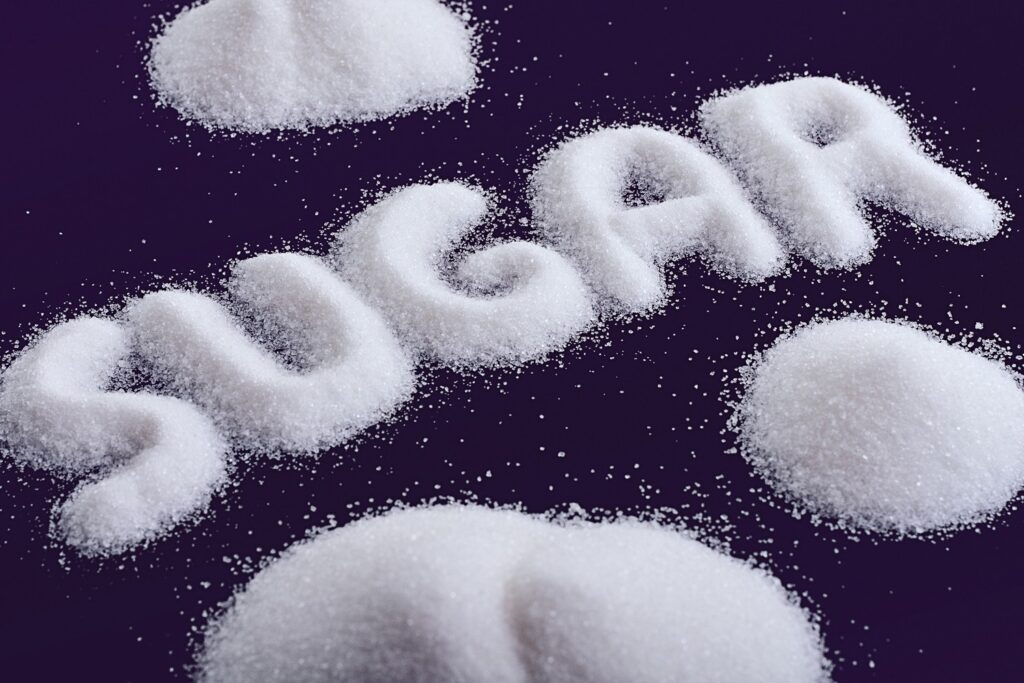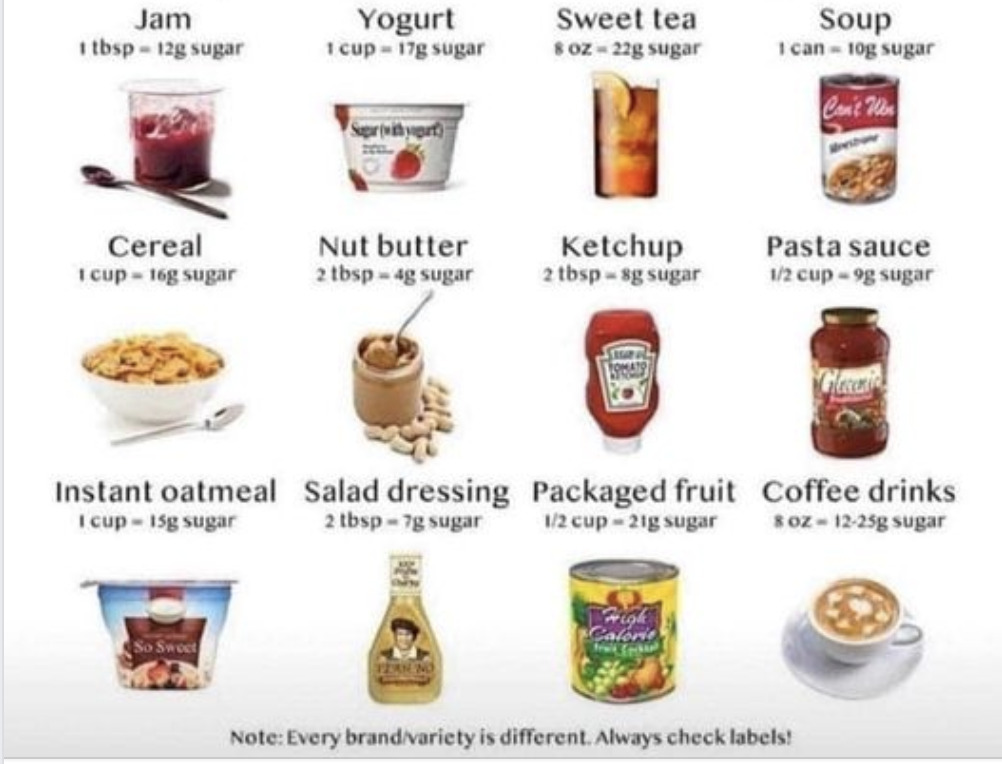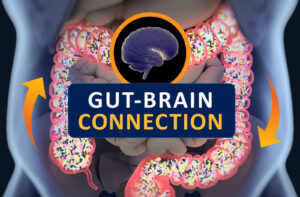For centuries, sugar has been a sought-after commodity, a sweet treat that has been used in a plethora of dishes worldwide. However, with the industrial revolution and the advent of modern food processing, sugar’s role in our diets expanded exponentially. Today, processed sugars lurk in countless products, from the obvious candies and sodas to the more unsuspecting breads and sauces. As delightful as they may taste, they come with a hidden price tag for our health – especially our gut. Here’s a deep dive into how processed sugars impact our health.
1. The Different Faces of Processed Sugar
Before diving into the implications for our health, it’s essential to understand what we mean by ‘processed sugars’. They come in many forms, including:
- High fructose corn syrup
- Cane sugar
- Beet sugar
- Sucrose
- Glucose
- Fructose
- And many more…
These sugars undergo various processing stages, stripping them of any potential nutrients found in their natural sources.
2. Sugar’s Impact on Overall Health
The allure of sweetness has been hardwired into our palates, likely due to our evolutionary preference for ripe fruits and energy-rich foods. However, in today’s world, this preference has been hijacked by the ubiquity of processed sugars, leading to far-reaching health implications.
1. Weight Gain: The Silent Accumulator:
Empty Calories and Hidden Sugars: Processed sugars, particularly those added to beverages and snacks, contribute significant ’empty’ calories — calories that provide energy but little to no nutritional value. These calories can stealthily add up, especially when we underestimate or are unaware of the sugar content in supposedly healthy foods.
The Biochemical Pathway: When consumed, sugars — particularly fructose — are metabolized by the liver. When taken in large amounts, the liver gets overloaded and starts turning sugar into fat, leading to increased fat deposits in the body. This metabolic pathway contributes to obesity and related complications[^1^].
2. Type 2 Diabetes: The Insidious Connection:
Blood Sugar Spikes: Every time we consume sugary foods or drinks, our blood sugar levels spike. In response, our pancreas releases insulin, a hormone that helps cells absorb sugar from the blood. Over time, with repeated spikes, cells become resistant to insulin’s effects, a condition known as insulin resistance.
The Domino Effect: As insulin resistance progresses, more and more insulin is needed to keep blood sugar levels in check. This overworking of the pancreas can eventually lead to its inability to produce sufficient insulin, culminating in type 2 diabetes[^2^].
3. Heart Diseases: Beyond the Obvious Culprits:
Sugar and Inflammation: Chronic inflammation, often silent and undetected, is a significant player in heart disease. High sugar intake can lead to increased inflammatory markers in the blood, setting the stage for arterial damage.
Lipid Profile Alterations: Apart from inflammation, excessive sugar has been linked to detrimental changes in blood lipids, including an increase in triglycerides and harmful LDL cholesterol, coupled with a decrease in protective HDL cholesterol. Such a lipid profile is associated with atherosclerosis and, consequently, heart diseases[^3^].
4. Cancer: The Sugar Connection:
Cellular Growth and Sugar: Every cell in our body requires energy to function, and cancer cells are no exception. Some studies suggest that these rogue cells might have a heightened preference for glucose, making them thrive in sugar-rich environments.
Insulin and Cancer Growth: High sugar diets lead to elevated insulin levels. Beyond its role in glucose metabolism, insulin can have growth-promoting effects, potentially encouraging the rapid proliferation of cancer cells. While research in this area is ongoing, there’s enough evidence to suggest caution regarding excessive sugar intake and its potential link to certain cancers[^4^].
In weaving through the tapestry of our body’s physiology, it becomes evident that the tentacles of sugar reach far and wide. While occasional indulgence is a part of life, understanding and respecting the profound impacts of excessive sugar is crucial for long-term health.
3. Processed Sugars and Gut Health
The intricate ecosystem within our gut plays a foundational role in our overall health. This ecosystem, primarily consisting of bacteria, has evolved over millennia and plays a vital role in everything from digestion to immunity. The introduction of excessive processed sugars, however, poses several significant threats to this delicate balance.
1. Disruption of the Microbiome:
The Gut’s Delicate Equilibrium: At any given time, our gut houses trillions of bacteria, some beneficial and some harmful. This diverse community works in harmony, aiding in digestion, producing essential vitamins, and keeping harmful pathogens at bay.
The Sugar Effect: Processed sugars can disrupt this harmony by serving as food for harmful bacteria, allowing them to thrive and outcompete the beneficial ones. As these harmful bacteria flourish, they can create an imbalance, known as dysbiosis. This dysbiosis has been linked to several health issues, from digestive discomfort to systemic inflammation[^5^].
2. Increased Gut Permeability:
Understanding ‘Leaky Gut’: The lining of our intestine acts as a barrier, ensuring that nutrients are absorbed while keeping out harmful substances. However, this lining can become compromised, leading to a condition colloquially termed ‘leaky gut’.
The Role of Sugar: Excessive processed sugar intake is one of the culprits behind this increased permeability. When the gut lining is compromised, it allows larger particles, such as undigested food and toxins, to seep into the bloodstream. This not only triggers inflammation but can also lead to a range of health issues, from food sensitivities to autoimmune disorders[^6^].
3. Exacerbation of Digestive Disorders:
The Prevalence of IBS: Irritable Bowel Syndrome (IBS) is a common gastrointestinal disorder characterized by a suite of symptoms including abdominal pain, bloating, and altered bowel habits.
Processed Sugars and IBS: For those already prone to IBS and similar digestive disorders, processed sugars can be particularly troublesome. They can lead to increased gas production, bloating, and diarrhea. Moreover, the shift in gut bacteria due to sugar can further exacerbate these symptoms, making management and recovery even more challenging[^7^].
In summary, while processed sugars might offer temporary palate pleasure, their long-term effects on our gut health can be profound. As we learn more about the gut and its pivotal role in overall well-being, the case for reducing processed sugar becomes even more compelling.
4. Processed Sugars: The Stealthy Saboteur
When it comes to processed sugars, their insidious nature lies in their ubiquity. Many of us are conditioned to associate sugar with overtly sweet products like candies, chocolates, and soft drinks. However, sugar has made its way into a staggering array of foods, including some that might seem outrightly savoury or healthy at a glance.
A major food industry tactic has been the introduction of sugar into “low-fat” or “diet” products. This might seem paradoxical at first, but there’s a method to this madness. When fat is reduced or removed from food items, it often compromises the taste. To counteract this, food companies add sugar to make these products more palatable. This results in a scenario where consumers, attempting to make healthier choices, inadvertently end up consuming added sugars.
Here are some commonly consumed foods where sugar lurks, often unnoticed:
- Yogurt: While yogurt is often promoted as a healthy snack, many flavored varieties contain significant amounts of added sugars. A single serving of some fruit yogurts can contain as much sugar as a candy bar.
- Salad Dressings: It might come as a surprise, but many salad dressings, especially low-fat ones, have sugar added to enhance their flavor.
- Pasta Sauces: Tomato-based pasta sauces can have sugar added to counteract the acidity of the tomatoes. Some commercial brands contain several teaspoons of sugar in just one serving.
- Bread: Many commercial breads, including some that are whole grain or marketed as healthy, contain sugar. It’s often added to provide a pleasing taste and to aid in the browning of the crust.
- Granola Bars: Often viewed as a healthy snack option, many granola bars are filled with sugars, syrups, and other sweeteners.
- Cereals: Even non-sweetened cereals can have hidden sugars. It’s not just the frosted or chocolate varieties that we need to be wary of.
- Canned Soups: Some manufacturers add sugar to canned soups to enhance flavour, especially in varieties that are tomato-based.
- Instant Oatmeal: Pre-flavoured packets of instant oatmeal can have added sugars to boost their taste.
- Sauces and Condiments: Ketchup, BBQ sauce, and even some mustards can contain high levels of sugar.
The list goes on, and the key takeaway is the importance of awareness. By getting into the habit of reading nutrition labels and understanding the various names for sugar (like glucose, fructose, high fructose corn syrup, maltose, and sucrose, to name a few), consumers can make more informed decisions about what they’re putting into their bodies.
5. Natural Alternatives
Given the adverse effects of processed sugars, it’s worth considering natural alternatives. Honey, maple syrup, and agave nectar are all sweeter and less refined than white sugar. While they still contain sugars, they come with beneficial nutrients and have a lesser impact on blood sugar levels.
Conclusion
Sugar is undeniably woven into the fabric of our diets, present not just in the desserts and candies we love but lurking often unnoticed in many everyday foods. Recognizing and understanding the profound effects sugar can have on our health is the first step towards making healthier dietary choices.
It might seem like an uphill task to eliminate sugar completely, especially given its pervasive presence in processed foods. However, the goal isn’t about total elimination but rather informed moderation. We need to be conscious of the types and amounts of sugar we consume. By taking steps such as reducing the intake of hidden sugars in processed foods, opting for whole fruits over fruit juices, and selecting natural sweeteners like honey or maple syrup, we can strike a balance that is both satisfying and health-conscious.
Reading food labels is an essential habit for those who wish to reduce their sugar intake. These labels often reveal added sugars that might not be immediately apparent from the product’s name or taste. Furthermore, understanding terms like glucose, fructose, and sucrose – all forms of sugar – can be beneficial in making informed choices.
By prioritizing our gut health, we’re not just improving digestion or reducing the risk of gut-related illnesses. A healthy gut can lead to a stronger immune system, better mental health, and an overall increased sense of well-being.
In a world where sugar is everywhere, being equipped with knowledge and awareness is our best defence. The choices we make today can pave the way for a healthier, more vibrant future.
References
- The Role of Sugar in Weight Gain – Harvard Health
- Sugar Intake and Diabetes – World Health Organization
- The Sweet Danger of Sugar – Harvard Health
- Sugar and Cancer Growth Research – Cancer Research UK
- Impact of Sugar on Gut Microbiome – NCBI
- Intestinal Permeability and Sugar – NCBI
- Sugar and Digestive Disorders – American Nutrition Association







